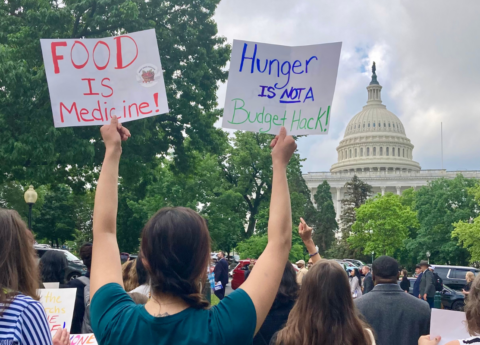Good news keeps coming in about Kentucky’s expansion of Medicaid and the launch of Kynect, the state’s health insurance marketplace. It’s clear that coverage is expanding rapidly, the newly-insured are using preventive health care services and reimbursements are flowing to health providers.
While some are spinning a false doomsday scenario about these trends—claiming it will mean unmanageable costs to the state—the real story is about the progress Kentucky will make by improving health, increasing family economic security and creating new health care jobs.
More than 421,000 Kentuckians have signed up for health insurance through Kynect, a much higher number than officials had expected. Outreach efforts have been successful, and Kentuckians clearly want and need the coverage. Also, those who are paying for private coverage through Kynect are finding it very affordable. As the Louisville paper LEO Weekly recently reported, the average monthly premium after tax credits is only $88 per month.
The coverage gains are spread across the Commonwealth, new data from Medicaid commissioner Lawrence Kissner show. Previously, at least 17 percent of residents were uninsured in 75 Kentucky counties, but it’s now likely that no counties have that many people without coverage. In four southeast Kentucky counties, the rate of uninsured may have fallen to less than 5 percent.
What’s more, those who have insurance are using it to get primary and preventive care. In the last year, annual dental visits through Medicaid increased by 15.8 percent; adult preventive services grew by 36.7 percent; breast cancer screening by 20.6 percent; and colorectal cancer screening by 16.1 percent.
Having insurance and using it to get needed care will translate into better health. A recent study looking at three states that had previously expanded Medicaid showed that after only five years, expansion was associated with a 6.1 percent reduction in premature deaths. Those who gained coverage were also more likely to say their health was “excellent” or “very good,” and less likely to say they delayed care because of costs.
Those health improvements are especially important to Kentucky, which has the highest rates of cancer deaths and preventable hospitalizations in the country, and ranks among the 10 worst states in obesity, diabetes and cardiovascular deaths. Our poor health harms economic growth by keeping many Kentuckians from living full, economically productive lives.
Health coverage increases financial security as well. An Oregon study showed that Medicaid very nearly eliminated catastrophic out-of-pocket health care costs, which are the biggest cause of personal bankruptcies. Other research shows that access to affordable insurance options can increase entrepreneurship since leaving a job to start a small business doesn’t mean facing costly individual policies or the risk of going uninsured.
Expanded coverage also means direct job creation. A University of Louisville study estimated that the money from Medicaid expansion would create 17,000 new jobs through the growing demand for health services—and that estimate was based on last year’s lower assumption of the number of people who would sign up. Kissner reported that a minimum of $284 million from the expansion flowed to Kentucky health care providers in the first six months of 2014.
While the state budget will eventually include the cost of 10 percent of the expansion, there are also big budgetary savings. Federal dollars will largely replace state money now going to cover the cost of care to the uninsured as well as some mental health and public health programs, and there will be substantial tax revenue generated from the new jobs that are created.
It’s misleading to narrow the discussion about Medicaid and Kynect to costs without looking at benefits. Doing so ignores the many ways Kentuckians will gain from the decision to expand coverage, including through improved health, lower financial risk and new health care jobs.
When looked at honestly, it’s emerging as one of the best policy decisions Kentucky has made in a long time.
Jason Bailey is director of the Kentucky Center for Economic Policy (KCEP), a nonprofit, nonpartisan institute that conducts research, analysis and education on important issues facing the Commonwealth. See more at www.kypolicy.org.

